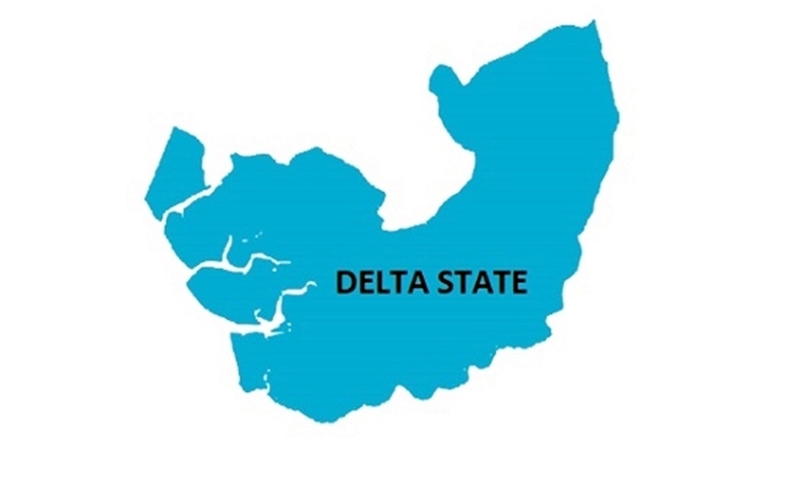“We can no longer live in healthy environments in our communities because the airspace has been polluted. On our waterways, it’s difficult to eke out a living through fishing as it used to be because of the unwholesome practice of cleaning oil spills by operators of oil companies. This certainly has to stop for the good of the people of the Niger Delta.” This was the cry of a leader, which echoes the cries of the majority, in the Niger Delta affected by the use of biosafety and toxicity dispersants to mop up oil spills by multinational companies.
Already, fishermen and women in Bayelsa State have ascribed some of the factors responsible for the declining fish production in the Niger Delta to frequent oil spills, use of chemicals, dumping of waste into rivers and other destructive fishing practices such as the use of trawlers by foreigners.
Dispersants are chemical substances used in oil spill control that act by breaking down the oil molecules and making them sediment at the sea bed.
Some environmentalists have also expressed concerns on the biosafety and toxicity of dispersants used to mop up oil spills from offshore waters which support fish and other marine creatures.
The concerns are coming just as the International Oil Companies (IOCs) divested from onshore assets to offshore fields.
The environmentalists, who spoke with newsmen in Yenagoa, Bayelsa State, against the backdrop of the November 15, leak from the Egina Floating Production Storage and Offloading (FPSO) vessel operated by TotalEnergies, said dispersants were known to be toxic to aquatic life that formed part of the food chain in the region.
Daily Trust on Sunday recalls that most people living in the states in the Niger Delta have over the years complained about contracting life-threatening airborne diseases such as asthma, flu and cholera due to the pollution on the environment by the activities of the oil companies, while sources of waters have also been polluted and aquatic life badly affected.
TotalEnergies, in a confirmatory statement issued one week after the November 15, oil leak in its facility, described the leak as “minor” with no adverse impact on shoreline settlements since it operated on Atlantic shores.
But the Director General, National Oil Spills Detection and Response Agency (NOSDRA), Mr Idris Musa, said that 3,000 barrels of crude was discharged into the Atlantic waters in the incident caused by an export hose failure. He also disagreed with the operator that the spill was a minor one.
The 220,000 metric tonne Egina FPSO has capacity to produce 200,000 barrels of crude daily and can store 2.3 million barrels on board.
It was learnt that 15,000 litres of COREXIT 9500 type liquid dispersant was sprayed using an aircraft and five vessels to mop up the leak.
Speaking on the dangers of oil spill to the environment, a renowned environmentalist, Dr Nnimmo Bassey (MFR), said that IOCs seemed to prefer the “remote” location of offshore oil fields, arguing that offshore oil fields shielded them from scrutiny of regulators and communities.
He regretted that after several decades of polluting their onshore fields, the IOCs were going offshore without clean up
Bassey further said, “The use of dispersants is mainly to hide the impact of oil spills from view.
“As the name says, they disperse but do not eliminate or remove the spills. It is known that chemicals remain in the aquatic ecosystem with some staying on the seabed.
“These dispersants have an impact on the aquatic species and by extension they also cause injury to human health.
“Considering the lax regulation of the oil field environment, this is another example of expanding the sacrifice zone the Niger Delta has been turned into.
“We cannot continue to sacrifice our people and environment on the altar of cash.”
He wondered why it took TotalEnergies over one week to confirm the operational mishap if not a failed attempt to cover up, and called for transparency and more stringent regulation of the offshore fields.
Also speaking, Mr Alagoa Morris, Head of Field Operations at Environmental Rights Action (ERA) in Bayelsa State, said, “The thing is that these chemicals called dispersant used by the oil companies to reduce the quantity of spilled crude oil or sink the crude oil are not properly identified by stakeholders or experts to enable informed conclusions.
“It is one of the ‘smart ways’ deployed by the polluters to be evasive, taking advantage of not having regulators or environmental NGOs within the particular location at that point in time.
“We in ERA have received several such complaints of inappropriate use of dispersants from community folks in Ogboinbiri, Odioama, Ikarama, etc.
“The use of dispersants is not an alternative for cleanup or remediation.
“We have had instances where cleanup contractors apply detergents as dispersants at Okpotuwari and Ikebiri environment in Olodiama Clan of Southern Ijaw Local Government Area of Bayelsa state.
“In most cases, dispersants either cause the crude oil to coagulate and sink or break down the molecules, leaving it still in the environment leading to environmental degradation,” Morris said.
Also, Rev Samuel Ayadi, Niger Delta Coordinator of Artisanal Fishermen Association, said, “The chemicals they call dispersant is poisonous; it not only kills fishes, but when the coagulated crude sinks to the seabed where fish breed, it wipes out the eggs as well, and that is like an epidemic.
“The dispersants they used for the spill at Egina will cause untold hardship to fishes and fishing activities in the Niger Delta for a long time starting with prolonged fish scarcity.
“Any fish that encounters the dispersant is poisoned and contaminated and poses danger to public health.
“The ones that survive will migrate deeper out of Nigerian territorial waters where artisan fishermen cannot reach.”
He urged the regulators to compel TotalEnergies to conduct toxicological tests to ascertain the biosafety levels in the Atlantic waters around the Niger Delta.
Already, fishermen in the coast of the Atlantic Ocean said the negative practices by oil companies which polluted the rivers and the ecosystem also affected their quest to eke out a living.
According to them, there is a high level of fish depletion in the oceans, rivers, creeks and lakes due to the harmful practices.
Chris Debunsha, from Tamugbene community in Ekeremor LGA of Bayelsa State, regretted the application of chemicals on raffia palms in lakes and creeks and fish which polluted the ecosystem, calling for stringent laws to protect the communities and the environment.
Another fisherman, Chief Ayebakuro Warder, from Ikarama community in Yenagoa, said that the frequent crude oil and gas spills had continued to have adverse effects on fishing and the health of fishermen and women.
Speaking on the situation, a social worker and lecturer at the Bayelsa State College of Health Technology, Otuogidi, Dr Azibasuam Arogu, said the dumping of pharmaceutical and other toxic waste was also impacting negatively on fish production and the health of the people.
He called on the government to implement laws that would ensure safe fishing practices and boost food security in the country.
We responded to the spill to safeguard aquatic environment – NOSDRA
Meanwhile, NOSDRA has said that its response to the estimated 3,000 barrels of crude discharge from an offshore field was to safeguard the aquatic environment.
The DG of NOSDRA, Musa, stated that the agency’s commitment to the environment was at the centre of its ongoing response efforts.
On the toxicity of COREXIT 9500 type dispersant used to tackle the leak, Musa noted that the liquid dispersant had lower toxicity to aquatic life, which justified its approval for use.
He said, “A lot of research is going on in order to get environment-friendly dispersants that could effectively combat oil spill incidents in the oceans.
“We are in concert with the development; there are other products that have been tested and proven to be non-toxic and effective in shallow waters and near shore.
“We as environmentalists and regulators would certainly not abandon our responsibilities to our environment and our nation.”
He assured that the agency was monitoring the toxicity levels near the incident site and beyond and would conduct a post impact assessment to ensure that the marine environment was given a clean bill of health.

 Join Daily Trust WhatsApp Community For Quick Access To News and Happenings Around You.
Join Daily Trust WhatsApp Community For Quick Access To News and Happenings Around You.


